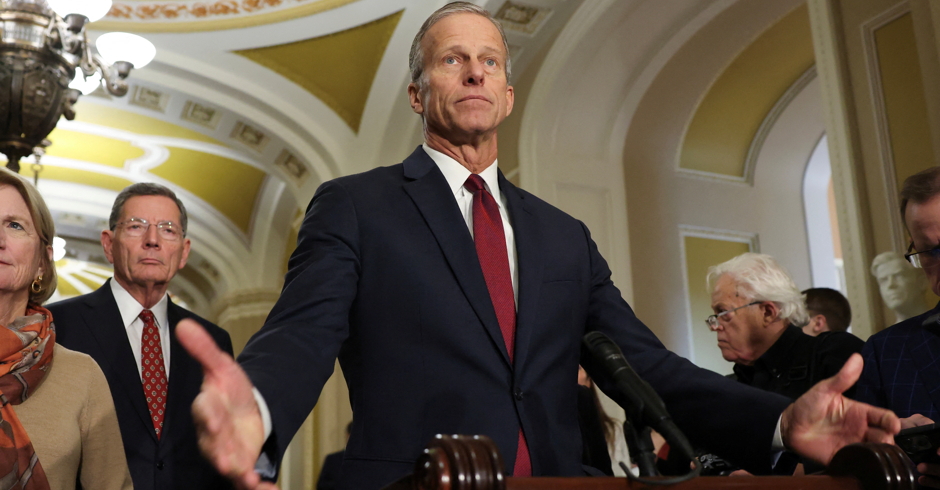Gay News Sites: Will Your Favorite Still Be There Next Year?
As gay, lesbian, bisexual, and transgender Americans — and their news — become mainstream, will the gay news sites that have supported them be able to survive? The New Civil Rights Movement talks with leading gay news and blog publishers.
Is there a future for the gay news and politics sites and blogs that focus on and advocate for the LGBT community, or will we continue to see them consolidate — or just disappear? Why are so many gay news sites finding it so challenging to stay afloat? Are advertisers leery of being associated with distinctly gay sites? Are readers loyal and dedicated enough? Is this niche just too “niche?”
“Whether corporate-run or one-man shops, the outlook for gay news blogs is that most of them are not turning a satisfying profit,” writes Nikki Usher, at Harvard’s own niche journalism site, Neiman Journalism Lab, in an article last week, “How niche is too niche? The case of gay news blogs.”
As a publisher in the same niche Usher profiled — LGBT news sites — I’ve certainly been feeling and experiencing many of the issues Usher’s article brings up. Inconsistent advertising and few advertising network options. Lack of advertising support from LGBT organizations. And while readership at The New Civil Rights Movement is growing exponentially — a 481% increase in visits, per Google Analytics, year-to-date over last year — earning us kind words from the media, and a #34 ranking in the Technorati 100 for politics, like most journalists and bloggers, I’ll confess to having to work very hard for each and every one of those.
The Battle For Readers
Readers are loyal, but with the mainstreaming of gay, lesbian, bisexual, and transgender news (Chaz Bono a great case in point,) smaller publishers are competing for the same pool of readers now that CNN and ABC News get without even batting an eye. And LGBT readers are non-chalantly sending their friends to non-LGBT sites, via social media like Twitter and Facebook, for the same stories that LGBT-focused sites cover — and often cover first, often better, or often with greater context — without considering the financial impact their actions have on the very publications that exist to support them.
Many readers, trained for years that everything online is free, often feel loyalty to the news sites and blogs they peruse, but almost never acknowledge that there is great cost — financial as well as personal — to running an independent news organization. And so, far too few ever consider clicking the “donate” button.
Complicating this race for readers and advertisers for LGBT news site owners is Google, which recently opened up its Google News platform to blogs that previously were relegated to the Google Blogs section — assumedly, a far-less trafficked search alternative. Historically, publishers had to jump through hoops (we certainly did) to prove they were a news-gathering organization, prove they had a hierarchical structure, prove they had a minimum of six or seven writers/reporters, and an editor. Evidence suggests those requirements are no longer being followed.
Traditional news organizations like The New York Times now compete directly in the Google machine for the same readers as, say, Perez Hilton, delivering readers staggeringly different and inconsistent alternatives — for better or for worse.
Nikki Usher, a PhD and Assistant Professor at George Washington University, who wrote the Neiman Journalism article, says that gay news sites and blogs, “should be perfect illustrations of booming niche sites that can monetize off a predictable and loyal audience looking for news and information it can’t find elsewhere,” then lists four sites and four reasons why they are not.
The sites Usher chose, Logo’s 365Gay.com, Bilerico, Queerty, and Pam’s House Blend, all essentially decided to re-organize in some fashion, be it cutting staff, as in the case of Bilerico, or finding a larger publisher to manage the day-to-day challenges, like blogger Pam Spaulding did in housing Pam’s House Blend under the renowned Firedoglake umbrella, to closing and re-emerging under a different owner, as Queerty did, or simply by, essentially, shutting down completely, as in the case of 365Gay, which will have some content published under different Logo-run businesses.
(Full disclosure, over the past year I wrote a somewhat regular column that 365Gay syndicated, and several years ago I also wrote for Bilerico. Yes, it’s a small world after all.)
Does Sex Really Sell?
As to why these sites changed, changed hands, or will be going away, Usher suggests that “advertising hesitation” is the main problem, and writes that gay news sites are “too political, too news-focused and not entertainment-focused enough to be considered a place to advertise by, say, Skyy Vodka or online dating sites like Manhunt,” and are “too culturally specific.” Some sites, Usher notes, have resorted to combining “sex appeal with news.”
As far as the sex-plus-news formula, it may be more of a negative than a positive. “NSFW” (not safe for work) stories — and therefore, sites — are avoided by many readers while surfing at work or on company-owned laptops and smart phones. And while The New Civil Rights Movement feels that there’s nothing wrong with sex, it has a time and place, and can detract from credibility of news sites.
Most readers would be pretty surprised to see NSFW images on CNN, The New York Times, or other well-respected sites. Should their expectations be different because the content is focused on LGBT readers? We don’t believe so.
Michael Goff, a partner at the highly-successful blog, Towleroad, thinks that major advertisers may not want to appear on pages that show a lot of skin. “If you’re going to do it, you better have a really big audience,” he warns, because, “advertisers don’t have to advertise.” He tells The New Civil Rights Movement, “There’s this weird sense of entitlement,” from some site owners. “They don’t owe it to you.”
Advertising Hits Home — Or Does It?
But “advertising hesitation” may in fact not be the main issue. There’s not necessarily a dearth of advertisers, per se, and while there is a ceiling on what advertisers are willing to pay, other issues have a drag on the success of all niche news sites — including the economy and the ever-changing worlds of technology and social media, like Twitter, Facebook, and now Google+.
But Usher’s final point has stuck in the craw of several LGBT news site publishers.
“The way advertisers take on their niche ad-buying strategies can hurt gay sites,” Usher writes. “Instead of advertising directly on those sites, for example, Human Rights Campaign will go to Google ads instead of banner ads. It’s easy micro-targeting without all the hassle of having to work with individual sites’ business development staffs. HRC gets a deal; the sites, however, get pennies.”
John Aravosis, founder of AMERICAblog, took great exception to this news and penned a column attacking HRC. In, “HRC buys cheap Google ads because it’s “hassle” paying gay blogs a decent price,” Aravosis called their actions “outrageous,” and proclaimed, “No gay blog should be running any HRC ads that come through Google for pennies, they should block them.”
(Publishers have the ability to block Google ads by specifying URLs, for instance, hrc.org, or, as this site has chosen, michelebachmann.com and other right-wing sites that don’t fit into our editorial ideology. Additionally, publishers are motivated to block certain ads, as readers often complain when they see ads for politicians and causes that don’t fit a site’s point of view.)
“In terms that progressives can understand, Google isn’t charging a livable wage for our advertising,” Aravosis tells The New Civil Rights Movement, adding that, “In the end, those ads are simply hurting the Netroots.”
Aravosis explains, saying, “far too many progressive groups and organizations are happy buying ads on the blogs via Google, rather than our own ad vendors, since Google offers such ridiculously cheap rates. If a union can ask you to use union shops, isn’t it fair for us to ask our organizations to use ad vendors who charge a livable rate for our ads? And the onus is on LGBT Web sites to block any ads that our organizations try to place through Google. Of course that assumes our organizations and allies even buy ads on the gay blogs. Far too often, they’d rather get their milk for free, as the old adage goes, rather than support their own community.”
In response to the Neiman article, Fred Sainz, HRC’s vice president for communications and marketing told The New Civil Rights Movement, “[Usher’s] piece gives the impression that HRC only buys ads through Google. That’s not correct. We have often gone directly to blogs, bought ads through BlogAds and yes purchased them through Google. Can we and will we do better? Yes.”
Aravosis remains dissatisfied. “Every progressive organization has a responsibility to support the community across the board,” he tells The New Civil Rights Movement. “They’re willing to pay (and can pay) $60,000 for ads in the major newspapers, they can up their support for the gay Netroots as well.” He adds, “No progressive ally should be buying ads via Google, period.”
For those unfamiliar with advertising rates and income, $60,000 is more revenue than some small niche news sites or blogs will see — ever.
Does Mainstreaming Help Or Hurt?
Jennifer Vanesco, editor-in-chief of the soon-to-be-shuttered 365Gay.com — one of the four sites profiled in Usher’s Neiman Journalism article — sees the battle for readers and advertisers more optimistically, “because the mainstream media is doing such a better job covering a more diverse swath of America. It’s about long term media trends, I think, instead of the LGBT market doing something wrong,” and observes, “As we’ve become more accepted, we’ve become more mainstream.”
John Aravosis, whose full-time job as editor at AMERICAblog is in addition to being a Democratic political consultant, echoes the fact that LGBT niche news sites are not “doing something wrong,” and notes, “we have a lot of blogs – gay, straight, and everything in between,” but, he says, that “doesn’t mean we have a lot of blogs that have a significant influence on national LGBT politics.” Aravosis notes there “are only a handful that make a difference nationally.”
“When my deputy editor, Joe Sudbay, went to the White House Christmas party this past December, the President immediately knew who he was. That’s not over-saturation, it’s influence, and it’s something our community needs more of, not less.”
Pro-LGBT Advocates Against The Right
But does the LGBT community even know they need that — or realize that in some, they already have that?
An important point LGBT readers must remember: LGBT news sites and blogs often work as advocates for their community as well, something CNN, The New York Times, and other traditional news organizations do not. The loss of LGBT media is not only the loss of a news outlet, but the loss of a soldier in the battle for equality.
And do readers understand the other side of the coin, that right-wing, anti-gay pundits, religious and “family” organizations, not to mention blogs and news sites, from media mogul Andrew Breitbart’s fictive news reporting and opining empire, to the Drudge Report, to Rush Limbaugh, to Fox News, all walk in lockstep?
“The odd thing is the right wing has no problem using its ‘wing nut welfare’ to amplify its messaging through politically compatible blogs,” blogger Pam Spaulding tells The New Civil Rights Movement. “The left is at once averse to that model, I suppose on principle, but I believe they are queasy about what any blogger might say that is off-message or not ‘safe’, and thus don’t want to make that investment as part of movement support overall. That reticence, along with the current feeble support through ads and direct fundraising campaigns (I don’t have them on the Blend, and don’t run skin ads), will never raise enough money to make LGBT-focused blogs sustainable. It all comes down to not wanting to see there’s a cost behind the free content they access each day.”
Spaulding, who, in addition to her full-time job and running Pam’s House Blend, which is now part of the large and influential Firedoglake, is frequently invited to share her point of view on panel discussions, and says progressive audiences, “realize the importance of independent blogs, but are unable to think of a model that allows full editorial independence, and provide a financial model that is grant/fellowship-based, which of course provides little stability from year to year. It gets tiring to outline the problem and hear — ‘I love what you do, I wish we could find some way to support the kind of work you do.’ And it goes nowhere. I’m used to it at this point.”
Spaulding, who was profiled in the Neiman article, was plagued by an inane lawsuit over the past year, and found a friendly haven in Firedoglake. Bil Browning, founder and publisher of Bilerico, opted to cut back on staff, Usher’s Neiman Journalism article revealed, as a way forward. But both Spaulding and Browning share a similar take on the state of the left wing vs. the right wing when it comes to bloggers.
“While conservatives are funding right-wing Internet sites, blogs, and pundits to the hilt, the left has abandoned progressive citizen journalists since Obama’s election,” Browning tells The New Civil Rights Movement. “For LGBT news and political analysis sites, this tightfistedness on the part of Democrats, LGBT and other progressive organizations, and large funders has resulted in quite a bit of belt tightening,” Browning acknowledges.
“Many serious LGBT news and analysis sites are consolidating, reducing staff, or going out of existence entirely. At this point, the left and LGBT leaders should be investing in our sites as an inexpensive way of moving their message, but instead they expect citizen journalists to work for solely altruistic reasons. It’s amazing. Just because we believe in the same ideals, doesn’t mean we don’t need to eat and pay our rent too.”
Viability And Paying The Rent
Paying the rent is a common theme for LGBT bloggers, most of whom work over 12-18 hours a day, often seven days a week, (as do I) battling the knowledge that to pay the rent, more than one full-time job may be necessary. After three years, The New Civil Rights Movement provides me annually what I made, after taxes, in a month as a retail executive running a $40 million business for a major corporation. In other words, it has yet to even pay the rent.
Award-winning journalist Karen Ocamb, who is both the News Editor at Frontiers In LA, the largest LGBT publication in Southern California, and editor of her own site, LGBT | POV, illustrates what many bloggers feel, wearily, day in and day out. Ocamb, in a piece that will publish at this site tomorrow, took some time to share her thoughts with The New Civil Rights Movement.
I would not be able to pay the rent if I only blogged at LGBT POV. I have Google AdSense – but frankly, the ads are whatever Google sends down the pike – including ads for Rand Paul’s tax plan. I have two friends who volunteer to help me and we’ve blocked some of the more atrocious ads. But for the most part, the ads only bring in “pennies.†Like other bloggers, I have seriously considered crashing LGBT POV because I am so frustrated at not having the time to do the kinds of pieces I want to do – which is why I started the blog – while also covering news and writing for my main job and blogging there, as well. Let’s just say I carry a packet of Low Dose Aspirin wherever I go.
And what is the solution for credible LGBT news organizations that suffer from not necessarily a small niche, but from not having achieved the economy of scale — i.e., reader traffic — necessary to be a sustainable, viable business, and having to play in the same ballpark as, say USA Today, or the highly-trafficked and highly-respected Towleroad?
“This is a similar problem the LGBT community has been having for decades,” says Michael Goff, a partner at Towleroad, which was started by the well-respected former Genre magazine editor in chief Andy Towle in 2003, and has grown to be one of the few LGBT sites that is doing well. (In fact, Goff notes this is their best year ever.)
Goff, who in 1992 founded “Out” magazine, the iconic, first national publication to attract both big-name writers and big name advertisers to the gay market, said to The New Civil Rights Movement that back when he started “Out,” “who knew what voices people wanted to hear?” Back then, it was far more expensive to amplify voices. Now, Goff reminds us, “access is almost free.”
Goff’s perception of both the current state of the LGBT news market and its future is different than Usher’s.
“We live in a unique moment in time,” says Goff, who feels “privileged” to be a part of the industry, although he, rightly, notes, “Most media properties don’t make it.”
Goff suggests he has a mission in this industry. Of anti-gay companies, Goff says, “Our job is to show them that their homophobia is standing in the way of them making money.”
To those sites who may feel like they’re struggling, he suggests they may want to “give up some independence and band together,” and, respectfully acknowledging the imminent shuttering of 365Gay, says, “this market is not big enough for MTV,” the parent of Logo and 365Gay. But Goff, stressing the need for collaboration, is very optimistic, and, offering hope, says that even “our most insurmountable problems are really very small.”
Goff is very supportive of smaller LGBT sites, and observes that, actually, “our community is a bunch of communities — it lends itself to smaller sites.”
Going International
As the LGBT news industry consolidates and gets smaller, so too does our world itself, and readers’ interests grow larger. The future may be very different than some niche LGBT publishers considered.
“The future is international. In the past year we have seen a number of new LGBT news web sites spring up and develop and get more professional,” Paul Canning, editor of LGBT Asylum News tells The New Civil Rights Movement. “Look at Gay Kenya or Gay Russia or Fridae or Behind The Mask or many others.”
“Most of these sites are reporting ‘international news’, but this is usually either American or British. On the other hand, British and American sites haven’t done a good job covering the rest of the world,” Canning reminds us. “I think the latter are missing a trick because they are both home to big diaspora populations interested in news from the regions they or their ancestors hail from. U.S. LGBT media coverage of Latin America, for example, is — perhaps oddly? — extremely poor. I would hope that market forces may lead to that changing — same goes for the UK. French sites, by contrast, do cover Africa and North Africa/Middle East as they see an audience for that news.”
Indeed, The New Civil Rights Movement is working hard to expand our ability to report on international LGBT stories. Among our reporting staff of 15, we have two contributors in London, two Canadians — one U.S.-based and one in Mexico — a U.S. civil rights advocate from South Africa, a Columbia University expert on Eurasia, and our newest contributor is a Fulbright Scholar in Nepal.
“In the end, we’re almost ending up where we all started – earning income by asking for donations, which is something a lot of us did before ads were viable,” AMERICAblog’s Aravosis says. “Our readers were incredibly generous back then in helping to keep us going. And we’re going to need our readers to help us again, or the gay Netroots may shrink dramatically over the next year or two, and that’s not good news at all for the future of our civil rights.”
With embarrassingly low advertising rates, a rough economy, and the mainstreaming of gay news, will your favorite LGBT site be there next year? If readers, advertisers, and the Left wing unite and support them, yes. If not, the field may narrow dramatically. To the detriment of us all.
(image)

Enjoy this piece?
… then let us make a small request. The New Civil Rights Movement depends on readers like you to meet our ongoing expenses and continue producing quality progressive journalism. Three Silicon Valley giants consume 70 percent of all online advertising dollars, so we need your help to continue doing what we do.
NCRM is independent. You won’t find mainstream media bias here. From unflinching coverage of religious extremism, to spotlighting efforts to roll back our rights, NCRM continues to speak truth to power. America needs independent voices like NCRM to be sure no one is forgotten.
Every reader contribution, whatever the amount, makes a tremendous difference. Help ensure NCRM remains independent long into the future. Support progressive journalism with a one-time contribution to NCRM, or click here to become a subscriber. Thank you. Click here to donate by check.
 |





















